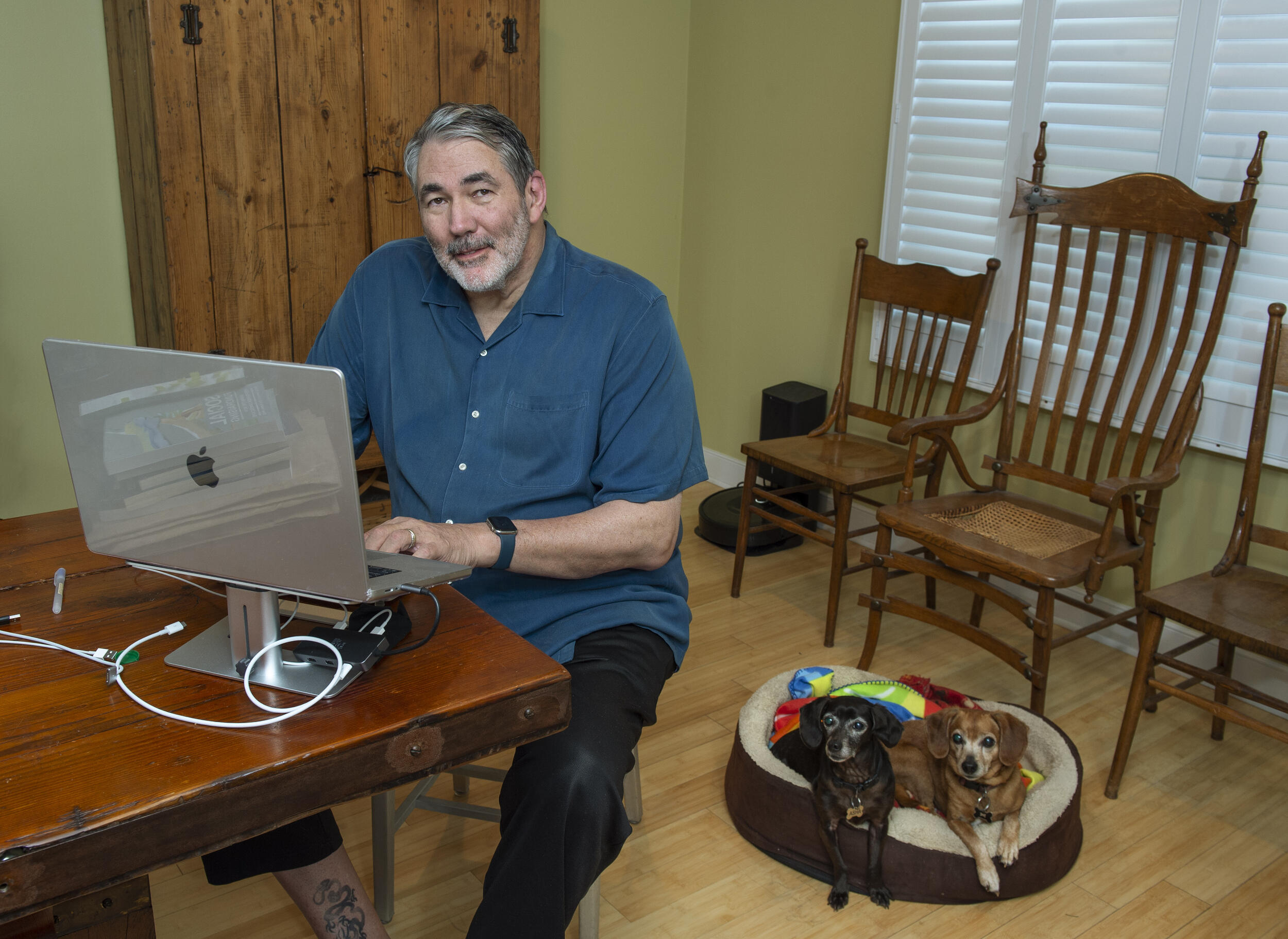
April 6, 2023
Class of 2023: Otis Fulton, who played basketball at UVA, has a lifelong passion for understanding why people behave the way they do
Share this story
Understanding people’s behavior is a passion that has fueled Otis Fulton’s career.
“What’s behind how people engage with others has always fascinated me,” said Fulton, who will graduate from Virginia Commonwealth University in May with his Ph.D. in social psychology. “Aside from maybe physics, I don’t think there is another field of study that changes your perception of reality as much as social psychology.”
Fulton, who is nearly 7-feet tall, received a bachelor’s degree in psychology and religion from the University of Virginia. He went to UVA on a basketball scholarship and in 1976 played on UVA’s first ACC Champion basketball team and in UVA’s first-ever trip to the NCAA Tournament.
He earned his master’s degree in psychology from VCU in 1985. Afterward he was interested in getting a Ph.D. in neuropsychology. But he changed his mind after working in a research position for two years in the Department of Rehabilitation Medicine at (then) MCV Hospital.
“It was all assessment and no treatment,” he said. “Plus, I needed to start making some money. So, I decided not to pursue a Ph.D. at that time.”
Instead, he started on his career path. First, he worked for the Virginia Department of Education, writing the state’s SOL tests. That led to jobs with multinational education companies, including MetaMetrics and Pearson Education, the world’s largest education company.
“I’ve used my psychology background in all my jobs,” he said. “MetaMetrics is a psychometric (psychological measurement) firm. Later, I worked for Pearson’s Clinical Assessment division, which markets psychological tests like the famous WISC (Weschler intelligence test).”
He decided to complete a Ph.D. in 2004 and was readmitted to the VCU psychology program in the College of Humanities and Sciences. Soon after, however, his work started to demand regular international travel, mainly to Asia, so he left the Ph.D. program.
“I was missing so much class time, it wasn’t working,” he said. “I decided maybe it just wasn’t meant to happen.”
His thought process changed after he remarried in 2015. His wife, Katrina VanHuss, encouraged him to complete his degree.

“It didn’t take much for her to persuade me,” Fulton said. “No matter my age, I’ve enjoyed taking psychology courses and being around the grad students.”
It took Fulton four years to complete his Ph.D. His dissertation, “The Interaction of Moral Identity and Recognition on Fundraising Behavior,” focuses on Facebook fundraisers. The research looked at how a person’s identity and the offer of being recognized for nonprofit fundraising impact the amount of money they raise.
“I tell people I got slowed down on my dissertation because of COVID. But if I’m being honest, I think I stretched it out because I enjoy being a student,” he said.
Jeffrey Green, Ph.D., associate professor in the Department of Psychology in the College of Humanities & Sciences, was Fulton’s graduate adviser and the chair of his dissertation committee.
“Jeff has a great breadth of knowledge about social psychology,” Fulton said. “I got so much out of every time we met, he guided me through every step of my research. I would never have finished my dissertation without his support.”
Fulton and VanHuss, whose company Turnkey consults with nonprofits on fundraising strategy, have written two books together, “Dollar Dash: The Behavioral Economics of Peer-to-Peer Fundraising” in 2017 and “Social Fundraising: Mining the New Peer-to-Peer Landscape,” published this past January.
Fulton publishes a regular blog on “the intersection of psychology and philanthropy” at NonProfit Pro and is a frequent speaker at national nonprofit conferences and guest on nonprofit webinars and podcasts.
He spends much of his time as a copywriter of nonprofit fundraising messages. He has written campaigns for UNICEF, St. Jude’s Children’s Research Hospital, The March of Dimes, Susan G. Komen, Autism Speaks and dozens of other organizations.
Fundraising is a purely social endeavor, he said. “What’s happening between two people when someone comes up to a friend and asks them to donate to a nonprofit? What makes people want to write a check to support a nonprofit’s mission? How should nonprofits talk in their emails and social media posts so people respond?”
“Understanding the psychology behind these situations is what I took away from VCU,” he said. “VCU gave me a much stronger foundation for doing the kind of work I do now.”
Subscribe to VCU News
Subscribe to VCU News at newsletter.vcu.edu and receive a selection of stories, videos, photos, news clips and event listings in your inbox.







